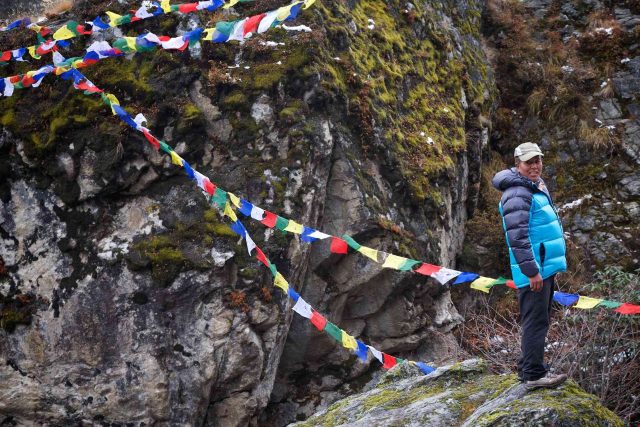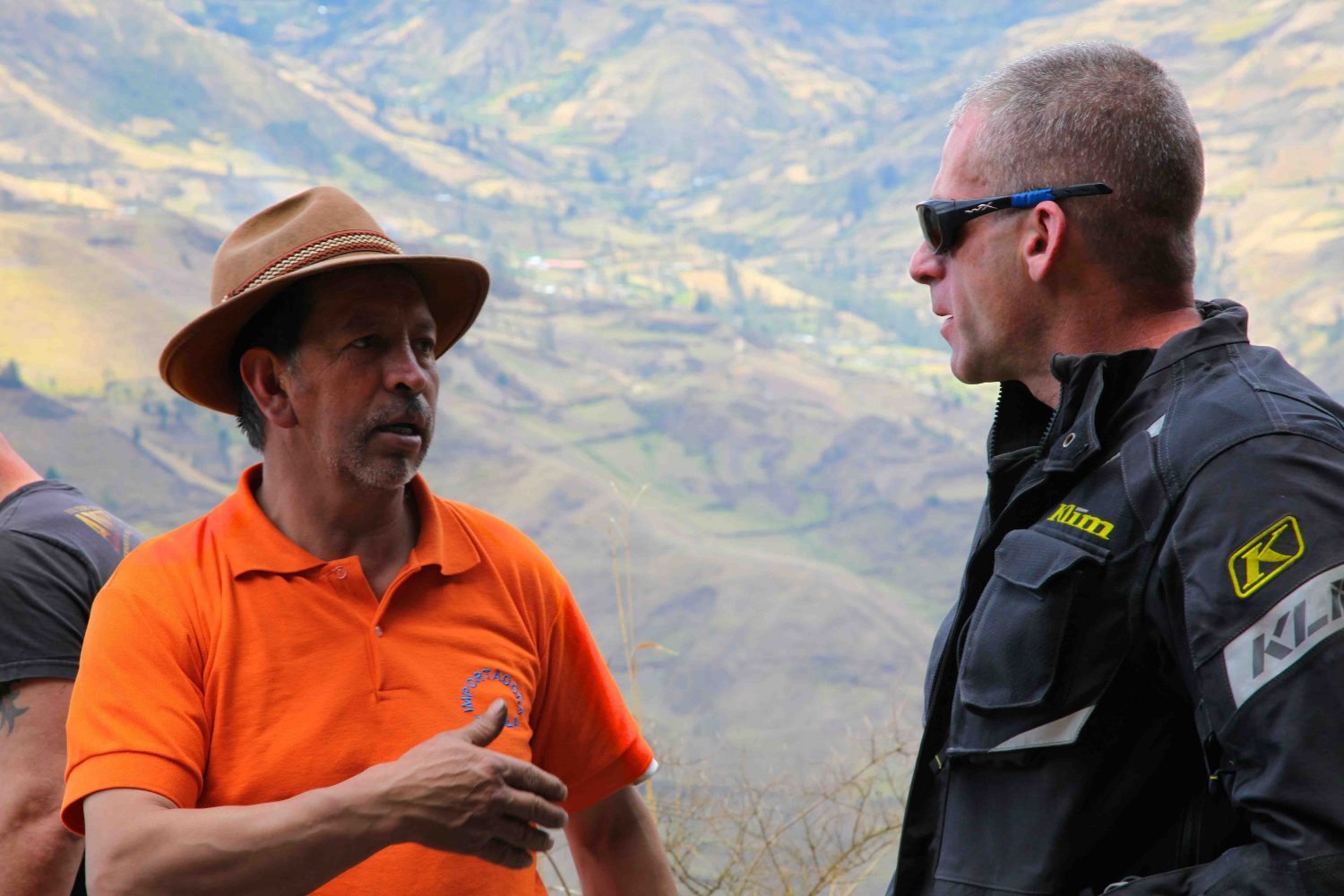In my early 20s I snagged an awesome gig as a bicycle tour guide in the wine regions of France. That led to managing other companies, including one of the largest adventure travel outfits in Alaska. As a result I always considered myself a leader—never a follower. Not to say I looked down on paying clients, but I discounted their sense of adventure and authenticity as travelers.
After nearly 10 years away from the guiding industry, I was extended another great opportunity, this time as a client. In my new career as a full-time journalist, I jumped at the chance, conceding I was doing so in pursuit of a story. I believed I didn’t need to be led around. I had guided hundreds of clients and knew how the whole guide and client thing worked.
Or, so I thought.
When I rolled up at the front doors of Ecuador Freedom Bike Rental in the capital city of Quito, it was a sea change in how I traveled. I planned nothing and had no clue where we were going. I had a duffle bag, a good friend to keep me company, and two amazing guides ready to hand deliver us to the remote corners of Ecuador. By the end of the week I had been fully transitioned from guide to client. It was fantastic.

I’m not inclined to ship a motorcycle to South America just for 1 week, so it’s great to have rental options ready and waiting.
Shortly after that trip, I joined other outings arranged by tour companies and government travel bureaus as a means of drumming up business. Each time I showed up with bag in hand and an unread paper itinerary shoved deep in a pocket. I was becoming quite fond of the fact someone else had done the hard work of planning the experience for me.
I don’t care how well you research your destinations, or how savvy you are as a traveler, you just can’t beat a local guide. When I was in Nepal my local fixer was a famous Sherpa. Her firsthand accounts of ventures into the Himalayas and her climb of Everest gave my experience a unique perspective I would have otherwise missed. On a trip into the Andes of Peru our small group was accompanied by a government-sponsored guide. When he pointed to a 3,000-year-old human skull in a burial mound, one not documented anywhere, I knew that moment was only made possible by virtue of a local expert. I certainly never would have known it was there.
Ease of logistics

One of my guides in Nepal was a Sherpa with more than 30 years guiding in the Himalayas. He never took his eye off me, always eager to show me the best sights.
When I was a bicycle guide in the early ’90s, I remember recoiling the first time I saw the price of a 7-day tour of southern France. At over $10,000 per person, it seemed like a stupid amount of money to part with for a vacation. Then I realized what those clients were paying for—convenience. The chances of me shipping a motorcycle to Ecuador for a weeklong ride are not just slim, they’re none. As a guided client, I went from my couch in Arizona to a motorcycle seat in South America in less than 24 hours. When the tour was over, I just walked away from the bike and tossed the keys to the guides.
Anyone who has planned a trip understands the complexity of all the dots to be connected from airport transfers, lodging, restaurants, supplies, attractions, and what roads to take or avoid. Locals just know where to go and most importantly—how to craft your experience by shaping the route and refining the logistics. On my independent trips, I’ve stood on the side of the road with an empty gas tank. That kind of stuff, sometimes fun and part of the experience, doesn’t interrupt a properly guided trip.
Mitigating mishaps
Let’s talk mishaps. During my first year as a bicycle guide in France, I had a client fall off a hotel balcony. It was entirely his fault, but that didn’t matter. I was the guide, and because we had emergency plans in place, getting him treated and back to enjoying his vacation as best he could was all in a day’s work. Touring companies know the dangers, how to best mitigate them, and what to do when things go pear shaped. No tour company escapes ugly events. None. How they deal with them is critical and another reason to go with a trusted pro.

Court Rand (right) is the owner of Ecuador Freedom Bike Rental and an incredible guide. He is a perfect conduit into the local culture with many friends dotted throughout the country.
Retaining the sense of adventure
I once had a fellow traveler tell me guided trips are not “adventures” because all of the risk and spontaneity has been removed. I would reference the balcony incident above, and emphatically deny the premise that organized tours are mundane. Weather, road closures, chance encounters with animals, rowdy locals, and any number of things conspire to keep a tour from being routine. How do I know? Because guides love routine, but it seldom happens. And if you’ve never been to your destination, it’s an adventure.

On my recent trip to Peru, my local fixer, Carlo, helped me quickly find the secret spots in his native mountains. Within hours of meeting him, I was experiencing a Peru I would have likely missed.
Strangers as travel mates
Here’s a tip from an experienced travel guide. Some tour groups include a client acting as the dedicated pain in the butt. Don’t let it be you. These are the people who are always late, complain about everything, and would have been better off staying at home. If you’re lucky, you know this person well enough to tell them to shut it. If they happen to be a stranger you just met on day one, that’s a bummer. Tell them to shut it anyway, and see how it goes.
On the upshot, more often than not, the people you meet on a tour, including the guides themselves, are likely to become fast friends. There’s nothing like a shared experience to bind people together like glue. It’s intimidating to join a group of strangers for something as personal as travel, but my experience suggests you’ll likely end up with more friends at the end.

Justifying the cost
If you’re a bargain hunter, guided travel will invariably clock in at a higher cost than independent travel. There’s no surprise there. Although many travel companies are able to wiggle discounted accommodations and condense expenses with group rates, those savings go toward their margin and offsetting operational overhead. These companies are in it to make money.
What you’re buying in the transaction is a greater chance your trip will not be plagued with mishaps, won’t require months of planning, will have contingencies and logistics already in place, and the journey tailored to create the most memorable experience possible.
Is it for you?
I’ll go out on a limb and suggest that any traveler worth their salt would enjoy a guided trip, even if just once. There are drawbacks. You do sacrifice some fluidity in your travel experience as you can’t deviate from the program without consequences. It is more expensive. It also doesn’t have to be your new norm. I would suggest you try it. I’m glad I made the switch from leader to follower.
So, where are we going?


